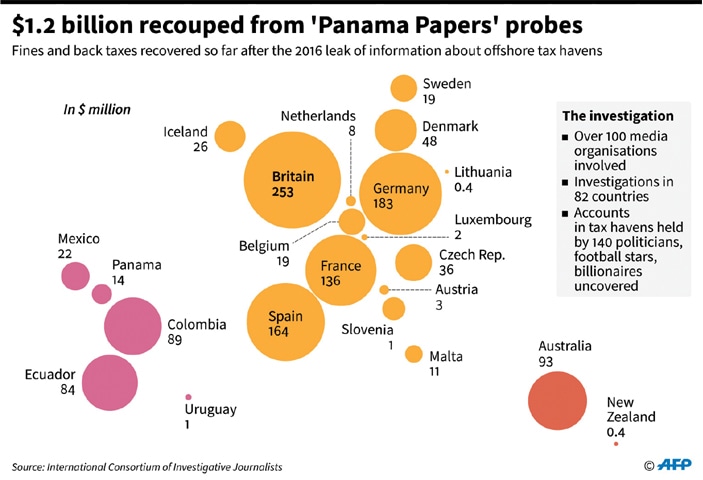FRANKFURT: Taxmen in 22 countries worldwide have raked in more than $1.2 billion in fines and back taxes thanks to the 2016 Panama Papers leak of information about offshore dealings, media reported on Wednesday.
Britain has recouped some $253 million, France $136m and Australia $93m, the International Consortium of Investigative Journalists (ICIJ) posted on its website.
Take a look: How Pakistan's Panama Papers probe unfolded
German newspaper Sueddeutsche Zeitung — which received the massive leak of documents from Panamanian law firm Mossack Fonseca on which the investigation was based — reported Berlin has reaped $183m from related tax probes.

“While recouping the proceeds of hidden assets helps to fund vital government services, there is a growing sentiment that the enduring legacy of the Panama Papers will be its effect on behaviour and public attitudes,” the ICIJ said.
Tax authorities have scrambled to respond to the massive tax evasion system that the leak revealed was organised through Mossack Fonseca’s Panama City offices.
More than 100 media organisations participated in the investigation, which uncovered accounts in tax havens held by 140 politicians, football stars and billionaires and enjoyed a global media echo.
The Panama Papers comprise 11.5 million leaked documents that detail financial and attorney-client information for more than 214,488 offshore entities. The documents, some dating back to the 1970s, were created by, and taken from, Panamanian corporate service provider Mossack Fonseca and were leaked in 2015 by an anonymous source.
While offshore business entities are legal, reporters found that some of the law firm’s shell corporations were used for illegal purposes, including fraud and tax evasion.
John Doe, the whistleblower who leaked the documents, remains anonymous, even to the journalists who worked on the investigation. “My life is in danger,” he told them. In a May 6, 2016 statement, John Doe cited income inequality as the reason for his action, and said he leaked the documents “simply because I understood enough about their contents to realise the scale of the injustices they described”.
The documents were dubbed the Panama Papers because of the country they were leaked from; however, the Panamanian government expressed strong objections to the name over concerns that it would tarnish the government’s and country’s image worldwide, as did other entities in Panama and elsewhere.
Published in Dawn, April 4th, 2019


































